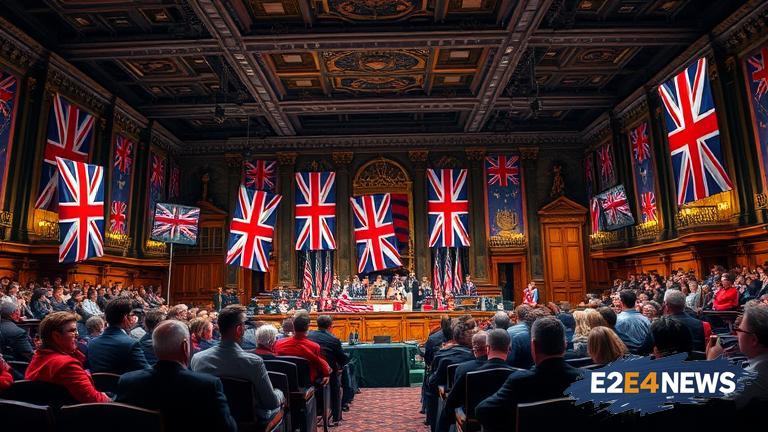The Trade Union Congress, the umbrella organization for trade unions in the UK, is preparing for a contentious debate on arms spending at its upcoming congress. The issue has sparked intense discussion among union members, with some arguing that increased arms spending is necessary for national security, while others claim it is a waste of resources that could be better spent on public services. The debate is expected to be fierce, with unions such as Unite and the GMB backing increased arms spending, while others, including the PCS and the RMT, are opposed to it. The UK’s arms industry is a significant sector, employing thousands of workers and generating substantial revenue for the economy. However, critics argue that the industry is also a major contributor to conflict and human suffering around the world. The UK government has committed to increasing arms spending to 2.5% of GDP by 2025, a move that has been welcomed by some unions but opposed by others. The debate at the Trade Union Congress is likely to center on the moral and economic implications of arms spending, with some arguing that it is a necessary evil, while others claim it is a luxury the UK can no longer afford. The congress will also discuss the impact of arms spending on public services, with some unions arguing that the money would be better spent on healthcare, education, and other vital services. The UK’s arms industry has been the subject of controversy in recent years, with concerns raised about the sale of arms to countries with poor human rights records. The debate at the Trade Union Congress is likely to be influenced by these concerns, with some unions calling for greater transparency and accountability in the arms trade. The congress will also discuss the role of trade unions in promoting peace and disarmament, with some arguing that unions have a responsibility to speak out against the arms trade and promote alternative forms of employment. The debate is expected to be lively, with unions from different sectors and industries bringing their perspectives to the table. The outcome of the debate is uncertain, but it is likely to have significant implications for the UK’s arms industry and the trade union movement as a whole. The Trade Union Congress is one of the most important events in the UK’s trade union calendar, bringing together representatives from unions across the country to discuss key issues and set policy. The debate on arms spending is just one of several issues that will be discussed at the congress, which will also cover topics such as Brexit, public services, and workers’ rights. The congress will be attended by thousands of union members, who will have the opportunity to participate in debates, vote on motions, and shape the direction of the trade union movement. The UK’s trade union movement has a long history of campaigning on issues related to peace and disarmament, and the debate at the Trade Union Congress is likely to be an important milestone in this campaign. The congress will also provide an opportunity for unions to build alliances and coordinate their efforts on issues related to arms spending and the arms trade. The debate is likely to be followed closely by politicians, policymakers, and industry leaders, who will be keen to understand the views of the trade union movement on this critical issue. The UK’s arms industry is a significant player in the global arms trade, and the debate at the Trade Union Congress has the potential to influence policy and practice in this area. The congress will also discuss the impact of arms spending on local communities, with some unions arguing that the industry has a negative impact on local economies and environments. The debate is expected to be informed by a range of perspectives, including those of workers in the arms industry, community groups, and peace activists. The Trade Union Congress is a democratic event, with decisions made through a process of debate and voting. The outcome of the debate on arms spending will be determined by the votes of union members, who will have the opportunity to shape the policy of the trade union movement on this issue.
